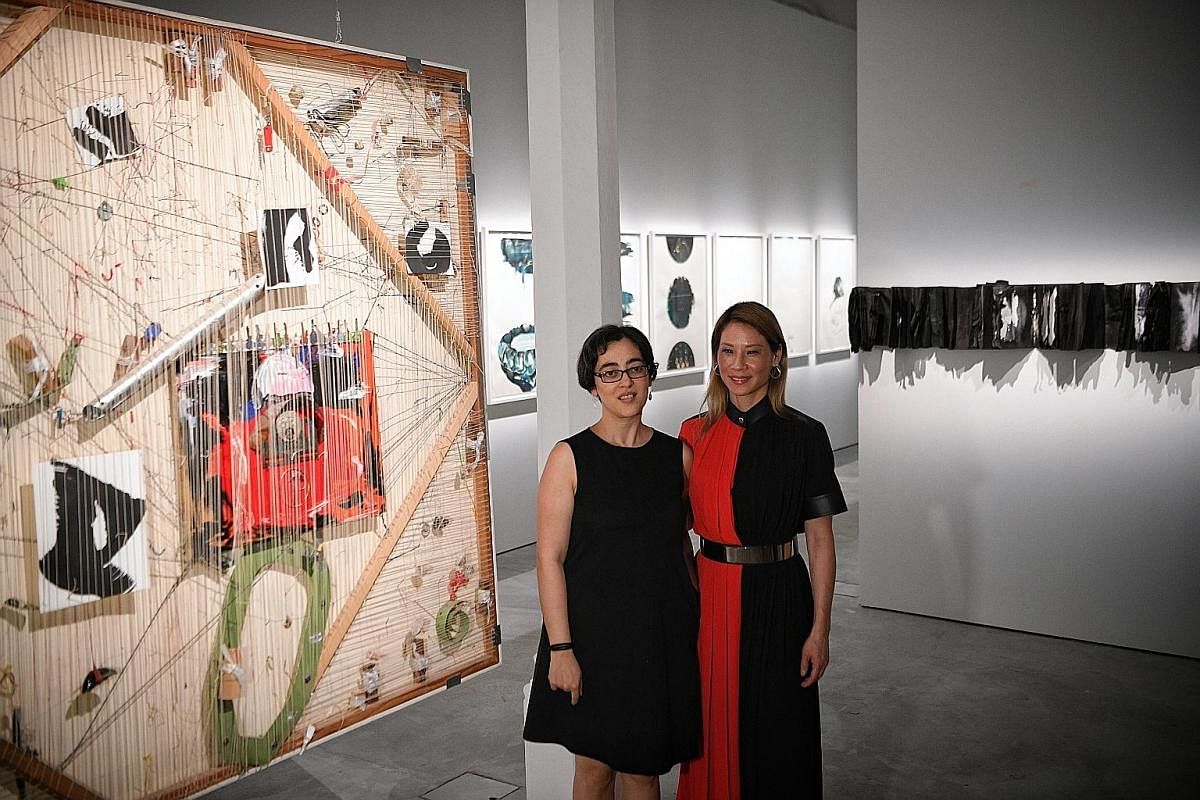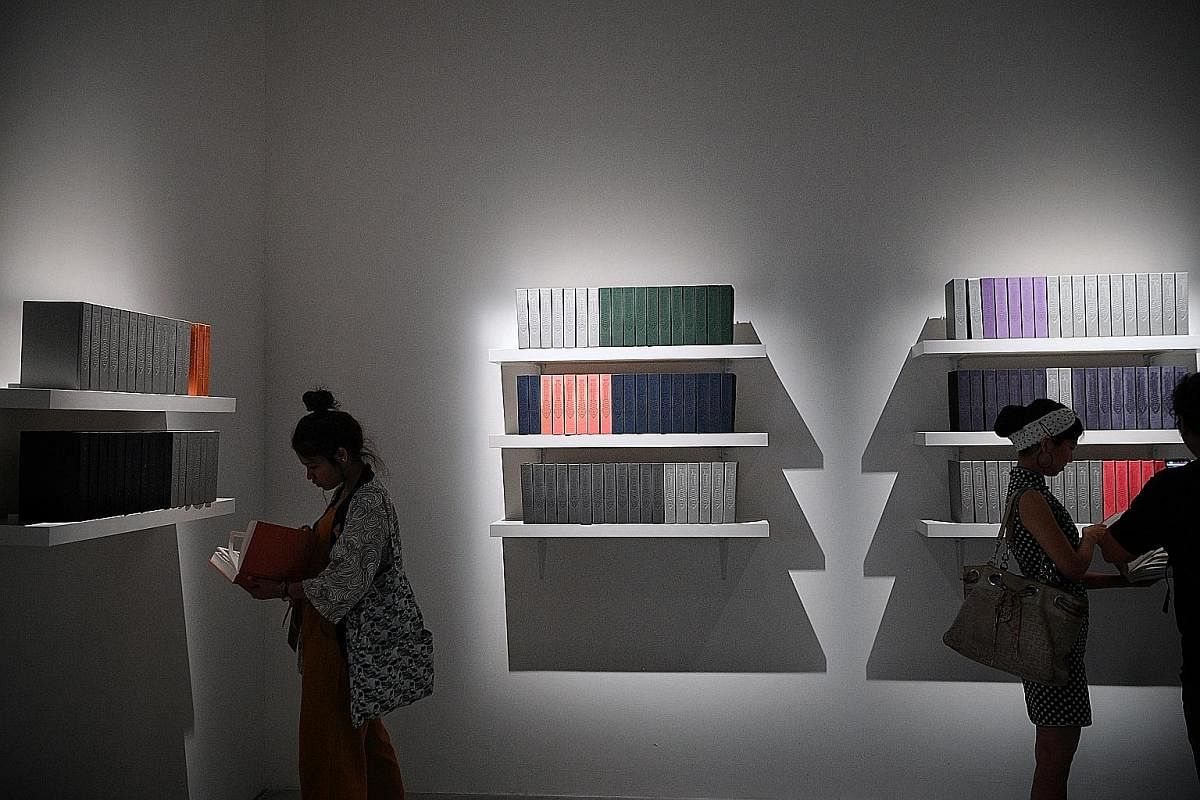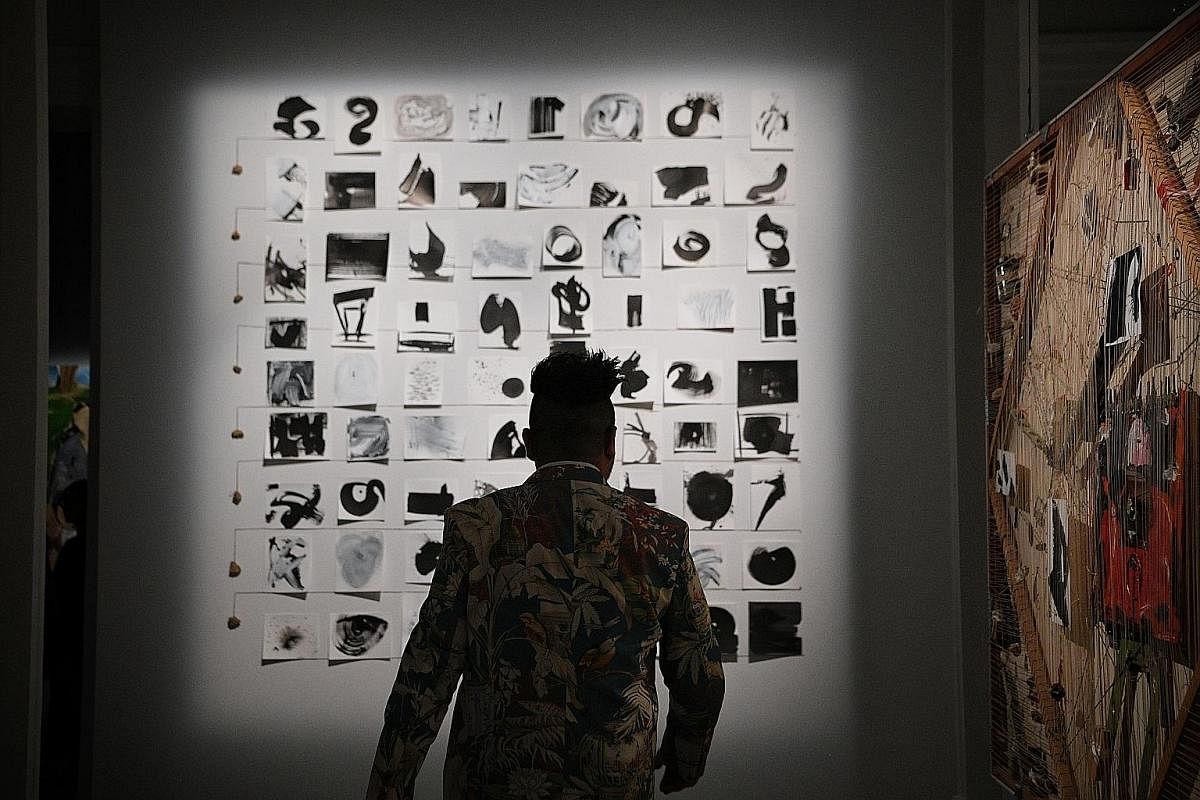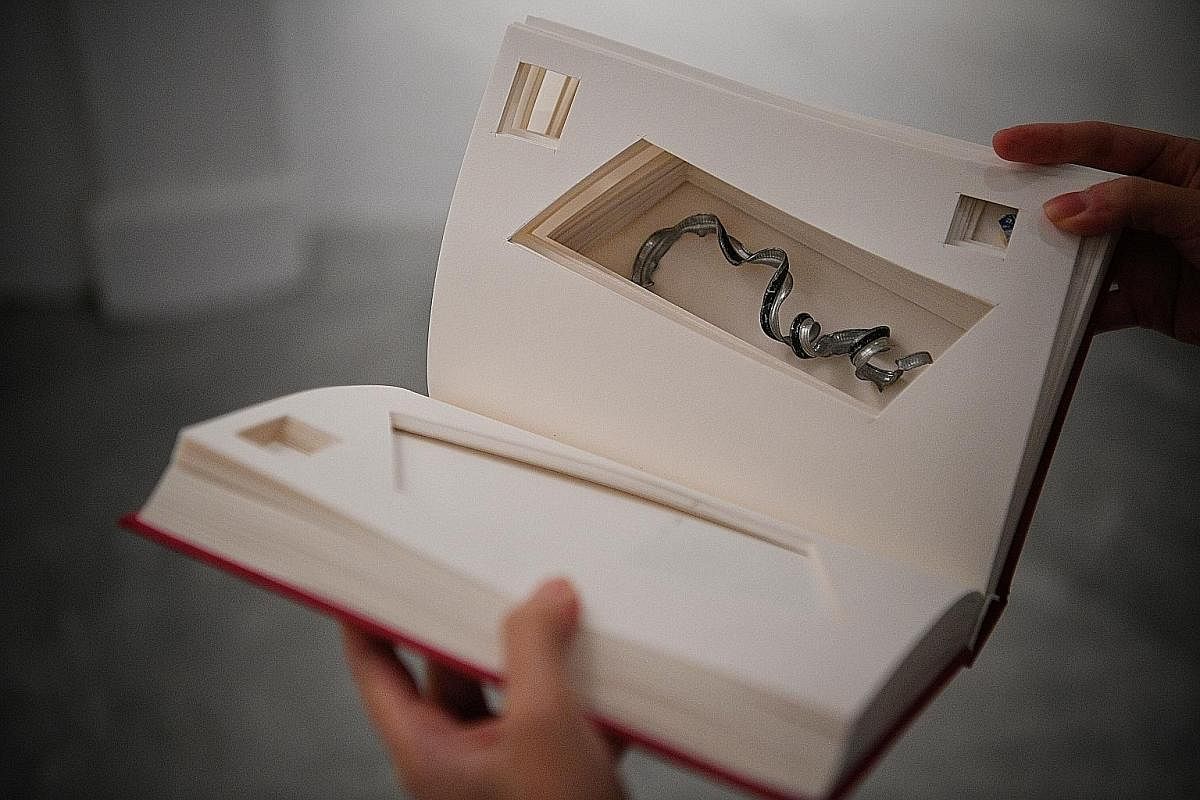-
VIEW IT / UNHOMED BELONGINGS
-
WHERE: National Museum of Singapore, 93 Stamford Road
WHEN: Until Feb 24, 10am to 7pm daily
ADMISSION: Free
INFO: nationalmuseum.sg
Actress Lucy Liu and artist Shubigi Rao giving the lost a home
Actress Lucy Liu and artist Shubigi Rao use found objects and books to explore loss, memory and belonging in their joint exhibition




American actress Lucy Liu collects trash.
Twisted bits of wire, crushed soda cans, rusty keys - at some point, she has picked them off the street with her bare hands and put them in her purse.
It got to a point where she would go to work and people would automatically hand her a Ziploc bag to store her finds.
"I find it abhorrent to pollute and to waste things," says the 50-year-old. "We grew up with very little money. We made the best of what we had."
For the past six years, the Hollywood star and director has been turning this trash into art, cutting spaces out of the pages of some 200 handmade books and gluing the objects in them - a process that wore her fingers raw.
This ongoing series, Lost And Found, is one of the artworks on show at Unhomed Belongings, a joint exhibition she is holding with Singaporean artist Shubigi Rao. It runs from today till Feb 24 at the National Museum of Singapore.
Both she and Rao, 43, work across several media, including found objects. The themes of loss, memory and belonging permeate their works.
"I think that when you connect to art, it heightens your level of being a human being," says Liu. "It gives you accessibility to something and makes you feel like you're not alone. And I want people to feel like they belong somewhere in the world and that they are not by themselves."
"The best of humanity comes out when we look at each other's work," adds Rao, who won the Jurors' Choice Award at the APB Foundation Signature Art Prize last year for the first portion of her decade-long project, Pulp: A Short Biography Of The Banished Book, now at its mid-point. Parts of it are shown in Unhomed Belongings.
Rao and Liu were introduced by the museum and non-profit arts organisation The Ryan Foundation, which is co-presenting the exhibition.
The foundation's founding director, Mr Ryan Su, befriended Liu over a sushi dinner in New York and later visited her studio, where he was impressed by her work - including Lost And Found, which she had not intended to show at first as it is unfinished.
Members of the public are encouraged to take her books off the shelves and leaf through them. Asked if she is concerned about the books getting damaged, Liu laughs. "Yeah, but that's part of life, isn't it? Damage."
She wants to create a book for the series in Singapore. "But fortunately or unfortunately, there is nothing on the ground."
It is her first time in Singapore. She arrived fresh from the Golden Globe Awards in California, where she was a presenter for the Singapore-set film Crazy Rich Asians (2018).
She is best known for starring in action film Charlie's Angels (2000) - at a time when few AsianAmerican actresses got leading roles onscreen - as well as appearing in Quentin Tarantino's 2003 film Kill Bill: Vol. 1 and the television procedural Elementary (2012 to present), the final season of which she recently completed filming.
But she was an artist before she was an actress, experimenting with collage in school when she was 15.
"There're so many artists that I find fascinating," she says. "I would've loved to have met (Dutch abstract expressionist Willem) de Kooning and (French-American painter and sculptor) Louise Bourgeois."
She finds exhibiting her work scary because of how exposed it makes her feel.
"When you're acting, you're playing a character and you want people to see that person in the way you format them to be. But when you show your work, it's intimate and terrifying."
She began exhibiting in New York in the mid-1990s under her Chinese name, Yu Ling, in an effort to separate her art from her acting career. She started using her more well-known name for Seventy Two, a 2011 solo exhibition at Salon Vert in London.
"Now, with the media and the Internet, it's impossible to really keep yourself anonymous. You just have to tear off the Band-Aid."
Rao, too, has worked under another name. For 10 years, she pretended to be a fictitious male scientist named S. Raoul and presented "his" work at scientific conferences and group art exhibitions, but she "killed him off" in a 2013 solo show, The Retrospectacle Of S. Raoul, which memorialised him after he supposedly tripped over an art installation and died.
In Unhomed Belongings, Liu deals with loss and destruction in works such as Velocity, created in response to the Sept 11, 2001 terrorist attacks. She took photographs of the destroyed World Trade Center, made a collage of them and embroidered a city skyline on it. On the other side of the canvas, she strung up a network of discarded objects, drawing on the traditions of Congolese protective fetishes and Japanese wish trees.
Meanwhile, Rao's artwork Pulp documents, through various media, the history of book destruction, such as the 1992 shelling of Sarajevo's national library.
"It is, I think, a futile attempt to psychoanalyse why our species loves violence and defaults so easily to it," she says.
The exhibition also contains two paintings from Liu's Family series, which is based on family photographs she discovered in 2016 while caring for her ailing father. While she later painted over them with subversive images such as a nude figure, she left one, titled Family Portrait, untouched.
"My father passed away last October," she says. "I painted that before he died, so it has a special resonance - a way of remembering my childhood in a positive way."
She believes it is important for children and youth to have access to art.
"The availability of art now is so limited because there are so many cuts and budgets in schools. There are studies that show that kids who have accessibility to art or do art have a better ability to balance and develop their brains.
"Art is part of education and it is going to help clear the way for a much better political system and infrastructure in undeveloped and developed worlds."
Join ST's Telegram channel and get the latest breaking news delivered to you.
A version of this article appeared in the print edition of The Straits Times on January 12, 2019, with the headline Actress Lucy Liu and artist Shubigi Rao giving the lost a home. Subscribe

